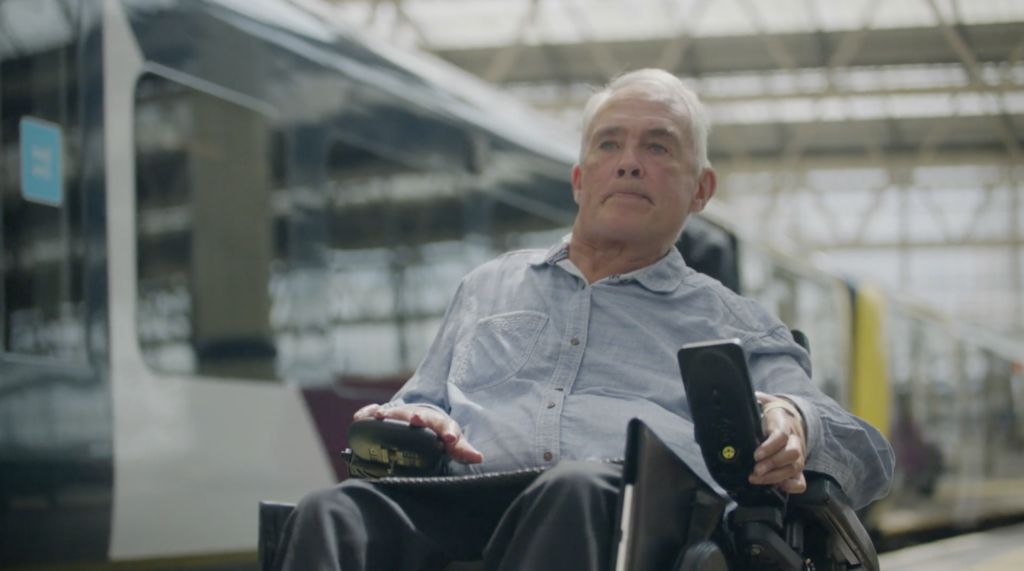“I know from my sporting days that playing on a level playing field really does seem fair … until there’s a strong wind blowing in your face.”
Stephen Duckworth, OBE, tells his story this International Day of Disabled Persons as he plays a vital role in driving the railway further towards a service that’s accessible to all.
This year’s theme is transformative solutions for inclusive development: the role of innovation in fuelling an accessible and equitable world.
Watch our new flagship film – Against Strong Winds – on our YouTube channel.
Stephen’s spent much of his life campaigning for equality for disabled people – and was instrumental in the creation Disability Discrimination Act.
The Act made it unlawful to discriminate against disabled people regarding work, the provision of goods, facilities and services or the disposal or management of premises.
His mission as a non-executive director at Network Rail is to help us deliver an inclusive and accessible service to everybody across Britain.

He says: “It needs to be an integrated transport system. To liberate the potential of people like me, not just to go from A to
B …
“But to find their way to work, to education, to training, to be welcomed and appreciated as travellers on the train system and enjoy seamless journeys just like everybody else.”
Against Strong Winds

Stephen appears in a new film, Against Strong Winds, to raise awareness of the need for inclusivity on the railway.
In it, he tells how he became paralysed after a rugby accident in his university years. His disability led him to be discriminated against as a newly qualified doctor when the General Medical Council stopped from ever practicing.
Stephen went on to earn a PhD in disability equality, which led him to campaign for the rights of disabled people. He founded and ran Disability Matters, a research and consultancy business with expertise in health and safety, sustainability and diversity with an emphasis on inclusive design.
The Disability Discrimination Act established rights for disabled people. But that’s not enough, says Stephen, who has advised the government and acted as a consultant for train operators Southwest Trains and Eurostar during his career.
He says: “We’ve got the barriers removed – or more or less – through the Disability Discrimination Act. But we’re now facing a howling gale of low expectations …
“I just don’t want to go to Waterloo, you know, I might travel up there from my local station, but I want the ultimate – what
everybody else has. The opportunity’s there, all we’ve got to do is grasp it.”
Access for All
The Access for All Programme provides an obstacle free, accessible route to and between platforms.
Most of the railway was designed during the Victorian era. But we now have a better understanding of how we should provide wider access and inclusion for everyone.
The Access for All programme means we now have step-free, accessible routes at more than 200 stations across Britain. And we’re working hard to give you improved accessibility for all our passengers.
We want each and every passenger to use the railway safely, confidently and independently.
Our most recent efforts include:
- an audio map of Bristol Temple Meads to help you through the station, which is undergoing a big refurb
- our plans to significantly improve Oxford station, with improved accessibility
- the build of the fully accessible Reading Green Park station
- the work underway at London Victoria to install eight new wide, accessible, gates, which will speed up your journeys through the station and improve accessibility for people with reduced mobility, luggage or pushchairs
- the assisted travel lounge coming to Manchester Piccadilly
- London Euston‘s new assisted travel lounge
- more accessible gatelines coming to Clapham Junction.